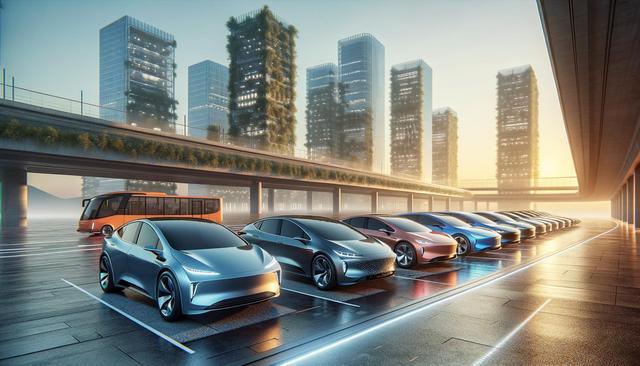What Are Hybrid Cars and How Do They Work?
Hybrid cars combine a traditional internal combustion engine with an electric motor to deliver power more efficiently. This dual system allows the car to switch between or simultaneously use gasoline and electricity depending on driving demands. The result is improved fuel efficiency and reduced emissions. Most hybrid vehicles use regenerative braking, a process by which kinetic energy is converted into electric energy and stored in the battery, thereby increasing energy efficiency.
There are three main types of hybrid vehicles:
- Full hybrids – capable of running on just the electric motor, gasoline engine, or a combination of both.
- Mild hybrids – cannot run solely on electricity but use the electric motor to assist the gasoline engine.
- Plug-in hybrids – have larger batteries and can be charged externally for longer electric-only driving ranges.
As technology advances, hybrid cars are becoming more sophisticated, offering features like automatic switching between power sources and intelligent energy management systems. For those considering a transition to more eco-friendly driving, hybrid vehicles offer a balanced option. Learn more by visiting this link: https://go.jexli.com/postback?clickId={click_id}&payout={epayout}&p2={campaign}
Environmental Impact and Benefits
One of the primary reasons for the growing adoption of hybrid cars is their reduced environmental impact. By using less gasoline and emitting fewer greenhouse gases compared to conventional vehicles, hybrids contribute to cleaner air and a smaller carbon footprint. This makes them an attractive option for eco-conscious drivers.
Key environmental benefits include:
- Lower CO2 emissions due to improved fuel efficiency.
- Reduced dependence on fossil fuels.
- Support for sustainable urban transportation initiatives.
Many governments also offer tax incentives or rebates for hybrid vehicle purchases, further encouraging consumers to make the switch. These incentives, combined with fuel savings, can lead to significant long-term benefits. For more details about available options, check out: https://go.jexli.com/postback?clickId={click_id}&payout={epayout}&p2={campaign}
Fuel Efficiency and Cost Savings
Hybrid vehicles are well-regarded for their exceptional fuel efficiency. By combining electric power with internal combustion, hybrids typically achieve higher miles per gallon (MPG) than traditional cars. This can result in substantial fuel savings over time, especially for daily commuters or long-distance drivers.
Cost-saving advantages include:
- Reduced fuel consumption, lowering refueling frequency.
- Less wear and tear on the engine, potentially reducing maintenance costs.
- Lower costs for oil changes and brake replacements due to regenerative braking.
While hybrid cars might have a higher upfront cost compared to their gasoline-only counterparts, the long-term savings can make them a worthwhile investment. Explore available vehicles and pricing at: https://go.jexli.com/postback?clickId={click_id}&payout={epayout}&p2={campaign}
Performance and Driving Experience
Early hybrid models were sometimes criticized for lacking power or responsiveness, but modern hybrids have evolved significantly. Today, many hybrid cars offer smooth acceleration, quiet operation, and reliable performance, making them suitable for various driving conditions from city traffic to highway cruising.
Performance-related features of modern hybrids include:
- Instant torque delivery from electric motors for quick acceleration.
- Advanced driving modes (e.g., Eco, Sport) to adjust performance settings.
- Improved handling due to optimal weight distribution of battery placement.
Thanks to ongoing technological advancements, hybrid cars now deliver a comfortable and enjoyable driving experience without compromising efficiency. To learn more about performance options, visit: https://go.jexli.com/postback?clickId={click_id}&payout={epayout}&p2={campaign}
Choosing the Right Hybrid for Your Needs
With a growing range of hybrid vehicles on the market, choosing the right one depends on your lifestyle and driving habits. Consider factors such as your daily commute distance, budget, and whether you have access to charging stations (for plug-in hybrids).
Here are a few tips for selecting a hybrid car:
- Assess how much time you spend in city vs. highway driving.
- Calculate potential fuel savings based on your mileage.
- Research vehicle features and available warranty coverage.
Comparing different models and reading consumer reviews can help narrow your options. Dealerships also often allow test drives, giving you a feel for the car’s performance and comfort. If you’re ready to explore your options, start here: https://go.jexli.com/postback?clickId={click_id}&payout={epayout}&p2={campaign}



Leave a Reply